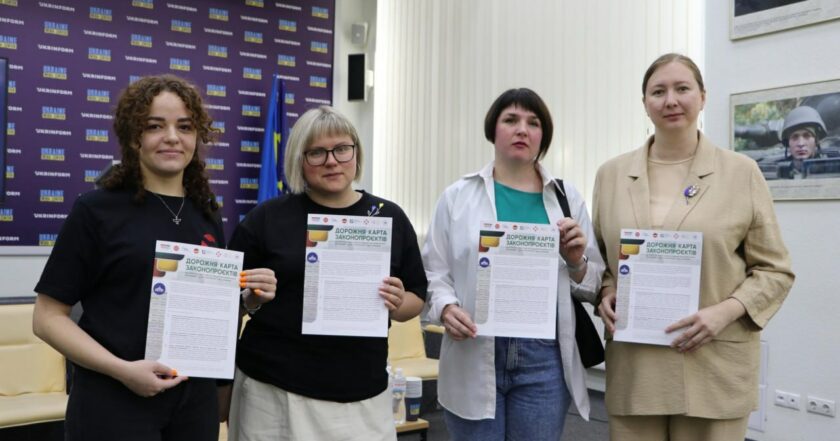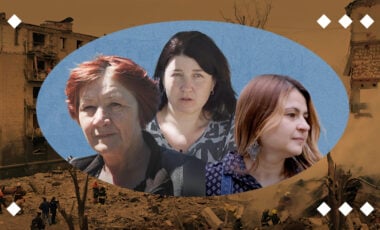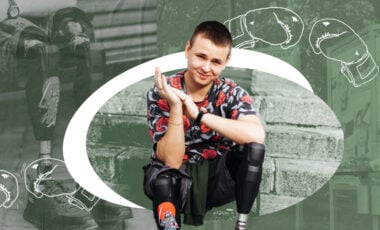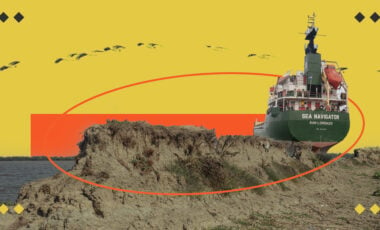Human rights activists propose bills to help people in de-occupied territories rejoin Ukrainian society

Presentation of bills. Photo: ZMINA Human Rights Center
Activists from the ZMINA human rights organization called on members of the Ukrainian parliament to support bills that will boost the reintegration of residents of Russia-occupied territories after de-occupation.
Aliona Luniova, Yulia Matviichuk, Olha Skrypnyk, and Anna Rassamakhina spoke more about the draft laws at the Ukrinform press conference.
What is the problem?
"The closer the de-occupation of the territories is to us, the more questions arise about how people who lived in the occupation — some for more than a year and a half, some for more than nine years — will be able to reintegrate into the social, cultural, informational and legal space of Ukraine," says Aliona Luniova, Director of Advocacy at the ZMINA Human Rights Center.
One of the key problems is the lack of a procedure certifying education acquired in the occupied territories. According to Aliona Luniova, more than 200,000 students in Russia-annexed Crimea received Russian-style documents, so currently, they can't get a job or continue their education because their education documents are invalid. In this way, the government loses able-bodied citizens who could improve Ukraine's economic situation.
The second problem is the prospective need to register hundreds of thousands of acts of civil status of Ukrainian citizens that took place in the temporarily occupied territories, which will cause a heavy burden on the judicial system. Such a need will arise because the legal process is currently difficult and practically impossible:
"If a child was born in the occupation, the parents or a representative must go to the territory controlled by the government, apply to the civil registration office, get a refusal, go to court, get a decision, return to the civil registration and only then get a birth certificate. This procedure is long, complicated, and expensive," Luniova explains.

Aliona Luniova on the problem of registration of newborn children. Photo: ZMINA Human Rights Center
What is the solution?
After the de-occupation, the Ukrainian government will face many challenges and problems that can be prevented now by applying the procedures proposed by the ZMINA organization.
On August 23, 2023, draft law № 9591, "On Amendments to Certain Laws of Ukraine on the Recognition of Education Results of Persons Living in the Temporarily Occupied Territory of Ukraine," was published. On May 16, 2023, draft law № 9069, "On Amendments to Certain Legislative Acts of Ukraine on Features of State Registration of Civil Status Acts Occurred in the Territory of Ukraine Temporarily Occupied by the Russian Federation and Outside Ukraine," was published.
Activists are promoting bolls, sending them to MPs, despite the fact that the contacts of many officials are not freely accessible due to martial law. They also cooperate with international partners and intergovernmental organizations. Such cooperation is important because, according to Olha Skrypnyk, head of the board of the Crimean human rights group, international partners have "more influence on government officials than citizens of Ukraine."

Olha Skrypnyk on the difficulties of promoting draft laws. Photo: Ukrinform
How does it work?
Adopting draft law No. 9591 will allow those who were forced to get an education during the occupation to continue their education and find employment in the Ukraine-controlled territory.
Currently, the state requires people from occupied territories to retrain regardless of whether it is school, professional, or higher education. If the education of Ukrainians (but not Russian documents) is recognized, the number of unemployed and low-income citizens in Ukraine needing financial assistance will decrease. In this way, more funds can be directed to other areas of reconstruction of Ukraine.
Approving draft law No. 9069 will legitimize the out-of-court procedure for state registration of civil status acts developed by the Ministry of Justice. After de-occupation, Ukrainians can simply apply to the civilian administration office with documents issued at the occupied territory and receive the appropriate Ukrainian certificate. The possibility of using information from such documents is provided by the Law of Ukraine "On Ensuring the Rights and Freedoms of Citizens and the Legal Regime in the Temporarily Occupied Territory of Ukraine."

Roadmap of draft laws for the reintegration of Ukrainians. Photo: ZMINA Human Rights Center
Such solutions will ensure the access of citizens of Ukraine to all rights and freedoms guaranteed by the state and will significantly relieve the judicial system.
Rubryka reported that in August of this year, the National Social Service started checking the actual place of residence of internally displaced persons who receive housing assistance from the state.






















































